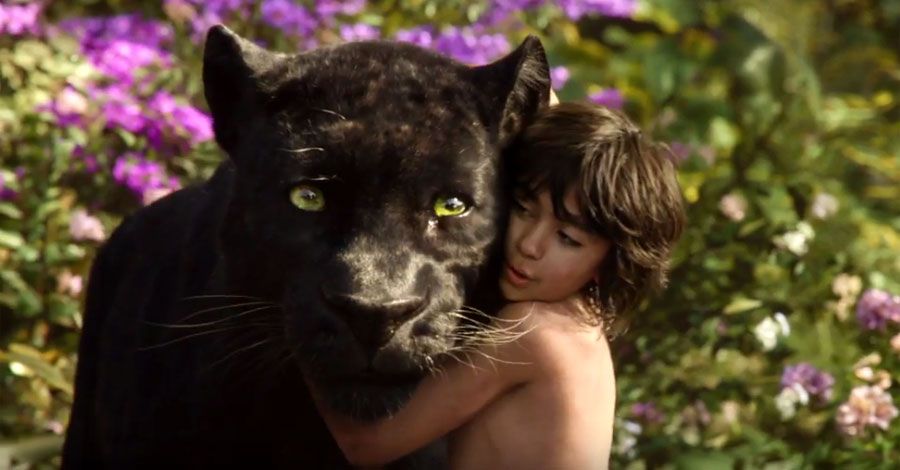Ben Kingsley has certainly proved he can play a diverse assortment of roles, from real-life spiritual leader Mahatma Gandhi to Iron Man’s terrorist enemy the Mandarin (or at least the washed-up, dissipated actor hired to impersonate him). So why not a talking black panther?
In a quick Q&A on the red carpet of his latest film, Disney’s live-action reimagining of “The Jungle Book,” the Oscar winner admits he didn’t hesitate when director Jon Favreau offered him the role of the paternalistic panther Bagheera.
And, as he reveals, the source material has long been close to his heart.
On how he became involved in the film
Ben Kingsley: I was very honored to be asked by Jon Favreau to be the voice of Bagheera. He asked me at a party, a pre-Golden Globe Awards party. He sat next to me, whispered in my ear that he’d like me to play Bagheera, and I personally was thrilled, and I think I said yes before he got to the end of the sentence.
So then you just get your head down, you study the character, you study the character’s motivations, and rhythms, and voice patterns, and then on with the job.
On playing a character with both Kipling and Disney in its DNA
I was acquainted with the book before. When I was very young, I was in Cub Scouts, and all of the names of the leaders in the hierarchy in the Cub Scouts are from “The Jungle Book.” So I was well-acquainted with all these beautiful names. Our troop leader was called Akela by all of us.
Review: Disney's "The Jungle Book" is a Thrilling Masterpiece
The first Disney “Jungle Book,” as we all know, was an animated child surrounded by animated animals. Here we’re much closer to the book, where we have a vulnerable, real flesh-and-blood child, which on the screen looks as though he’s surrounded by wild animals that can talk. It’s miraculous! And the beautiful thing about Jon Favreau’s version is that he puts in little homages to the earlier version. Little nods, which is I think very charming.
His take on the film’s Mowgli, newcomer Neel Sethi
I had two days’ work, and we sustained a working relationship, even though we were separated by thousands of miles of different studios. When you get to meet him, you realize he’s a highly intelligent, remarkable young man.
On the deeper meaning he found in the story
Subsequent to making the film, I had the great pleasure of reading Rudyard Kipling’s letters to his son John, who as you may know died in World War I at the age of 18 at the Battle of Loos, Belgium, 1915. Kipling never recovered from that loss. Up to that, Kipling was always very energized by trying to tell his son what kind of man his father wants him to be.
There’s a beautiful tragic flaw somewhere in that the writer, Kipling, felt a pang of guilt because he encouraged his son to join the military. He was turned down twice because of his eyesight. He worked on his son’s eyesight, got him into the army. He was dead within months. I think what we take from with that hindsight, and the beautiful letters I read with my son Ferdinand, the exchange of letters, there is an extraordinary, passionate commitment from the writer as to what he thinks a young man should be.
Favreau’s translated it for the 21 century very tenderly, and very beautifully, into how we should protect an orphan abandoned child. That was the driving engine behind my performance. We must protect our children. I think this film will enhance the joy of protecting our children. The boy’s an orphan in this movie. He’s an orphan, he’s abandoned, and he triumphs.
Disney’s “The Jungle Book” opens today nationwide.

